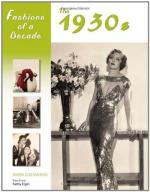|
This section contains 92 words (approx. 1 page at 300 words per page) |

|
Studies and Tracking. The practice of long-term empirical study of curriculum and education, begun in the 1920s, was expanded in the 1930s. Educators framed many new "surveys" to determine the success or failure of curricular innovation and new teaching techniques. These surveys were closely tied to controversies over educational philosophy and the political power and economic strength of certain communities. Their results were accordingly mixed and undermined by charges of partisanship. Despite their inconclusive nature, such surveys thrived in the 1930s.
|
This section contains 92 words (approx. 1 page at 300 words per page) |

|




